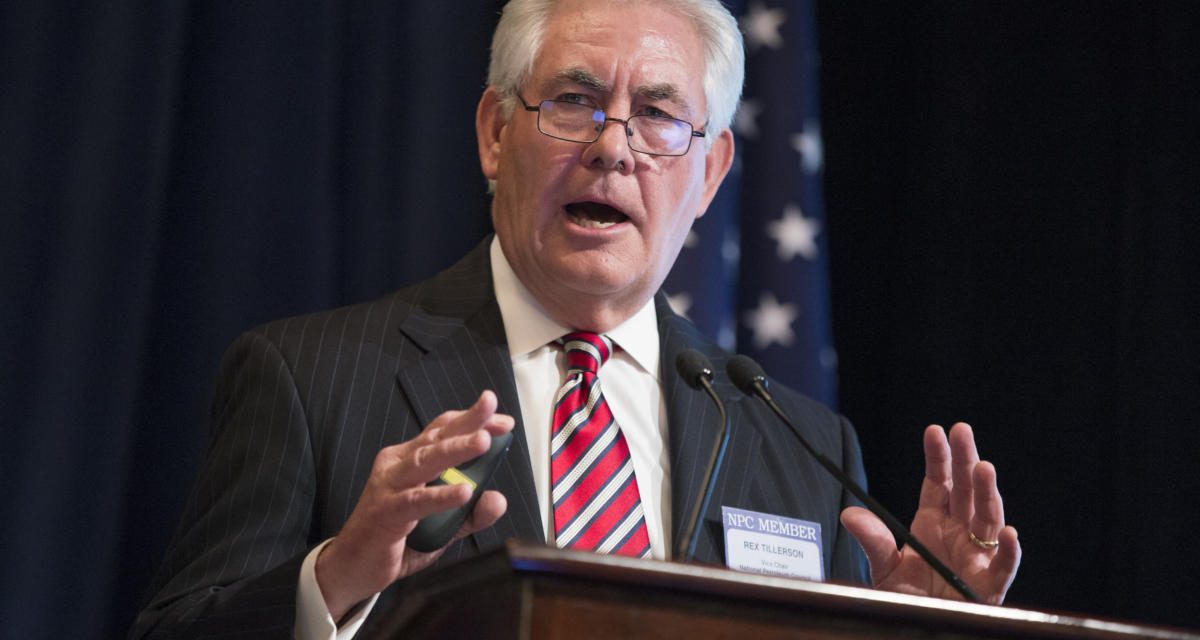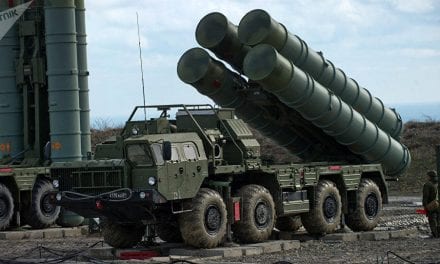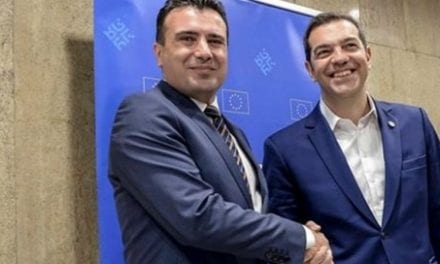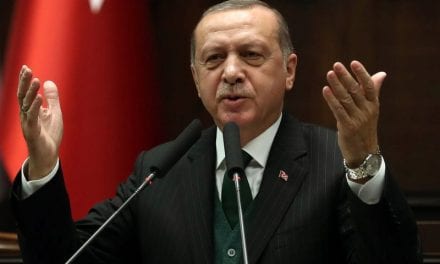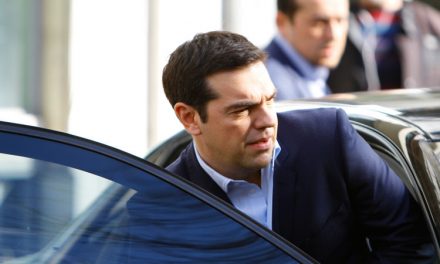By Ilhan Tanir, Ahval
U.S. Secretary of State Rex Tillerson called Turkey’s blocking of an Italian gas exploration vessel off Cyprus “gunboat diplomacy” in a meeting last month on the many issues dividing the two NATO allies, and eyes will be on the eastern Mediterranean again this week as U.S. oil giant ExxonMobil sends its own drilling ship to the island and the U.S. Navy beefs up its presence in the area.
Although Tillerson’s three-and-a-half hour meeting with Turkish President Recep Tayyip Erdoğan was conducted without any aides or interpreters, and with Turkish Foreign Minister Mevlüt Çavuşoğlu the only other person present, some of the talks have still made it out.
According to Western diplomatic sources in Washington, Tillerson’s talks in Ankara were mostly repetitions of the old positions of the two countries that are divided over Syria, the extradition of U.S.-based Turkish preacher Fethullah Gülen, the arrests of U.S. citizens in Turkey and the New York conviction of a Turkish banker for his part in a scheme to evade U.S. sanctions on Iran.
The two sides did decide though to hold further meetings to establish three mechanisms to solve problems between them, apparently the most successful outcome of the talks. The meeting was not a breakthrough, but it appeared to at least postpone the tension between the two countries.
The Turkish side’s demand to negotiate these mechanisms between high-level officials -at least on a assistant secretary level-, was rejected by the U.S. and will instead be held at an deputy assistant secretary minister level. This undoubtedly disappointed the Turkish side.
One new issue added to the list of problems between the United States and Turkey though, was the growing energy conflict over Cyprus and tensions in the Aegean.
Turkish warships twice blocked the path of an exploration vessel leased by Italian energy firm Eni off Cyprus last month, forcing it to divert. Tillerson called that “gunboat diplomacy” during meeting with the Turkish Foreign Minister, the diplomatic sources said, and urged Turkey to ease the tension.
The eastern Mediterranean has seen some of the world’s biggest gas discoveries in the last decade, at a time when Europe is looking to diversify supplies from Russia. The huge Zohr gas field in Egyptian waters is particularly exciting for Cyprus, whose exclusive economic zone (EEZ) borders the estimated 30-trillion-cubic-feet gas field.
But Turkey is the only country not to recognise the Republic of Cyprus government as not being sovereign over the whole island and instead backs a self-declared Turkish Cypriot state in the northern third of the territory that Turkish troops invaded in 1974. Turkey says deals explore for gas around Cyprus are a violation of Turkish Cypriot rights to the potential energy wealth.
The United States said in a statement to Ahval last week that it “recognises the right of the Republic of Cyprus to develop its resources in its exclusive economic zone”.
U.S. oil giant ExxonMobil is to send two surveying vessels, which are expected to arrive in the Cyprus EEZ on Monday or Tuesday. The ExxonMobil ships are expected to start drilling in October. The U.S. Navy’s Iwo Jima amphibious ready group, including three amphibious ships and 2,500 U.S. Marines, entered the Mediterranean late last month, and could sail to the area around Cyprus.
It remains to be seen whether the Turkish Navy will attempt to block the ExxonMobil vessels in the way it did with the Eni exploration ship. That could create a new crisis between Turkey and the United States.
The fact that Tillerson was CEO of ExxonMobil before becoming secretary of state adds another dimension to the diplomatic dispute.
Meanwhile in Washington, as I mentioned in a previous article, the U.S. deputy assistant secretary for European and Eurasian Affairs covering Cyprus, Greece and Turkey, Jonathan Cohen has been nominated to a post at the United Nations.
His boss, Assistant Secretary of the Bureau of European and Eurasian Affairs A. Wess Mitchell, has previously taken a back seat to Cohen on Turkey. One diplomatic source said Mitchell “has been almost absent on Turkey issues, but for Tillerson’s visit which got him engaged”.
The expectation is that Mitchell will become more active on Turkey issues as Cohen departs. Mitchell was very actively engaged during Tillerson’s visit to Turkey last month, the diplomatic sources said, and quietly visited Ankara to prepare the ground beforehand. Mitchell’s visit was interpreted in the diplomatic circles in Washington as a sign of him taking over the Turkey file.
Mitchell is mostly known for being hawkish on Russia both at the State Department and in his former role as head of the Center for European Policy Analysis, a think-tank dedicated to the study of Central Europe. “He’s a Russia hawk and he sees everything from that vantage point,” said one Washington expert who is aware of his earlier work.
“There seems to be a general perspective that he’s definitely more concerned with the Russia angle vis-à-vis Europe than other issues,” the expert said.
As splits appear to be emerging between Erdoğan and Russian President Vladimir Putin, it is unclear whether Mitchell would favour imposing sanctions on Turkey as he does against Russia. Cohen was known to be among those within the U.S. administration most strongly opposing growing calls from Congress to sanction Turkey over human rights abuses, attacks on U.S. allies in Syria and its steady dismantling of democracy.
As ExxonMobil’s ships enter Cypriot waters, it may become clear upcoming months whether Mitchell offers something different than the appeasement of the past.

